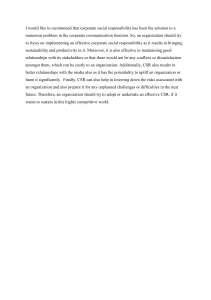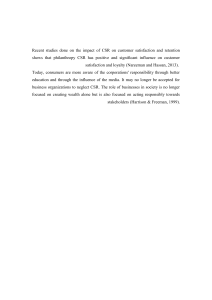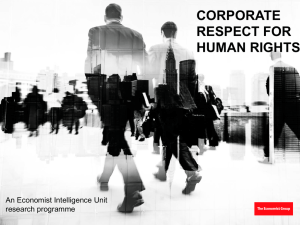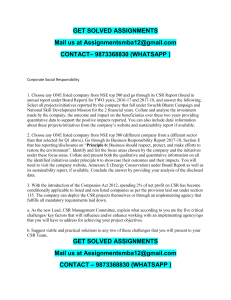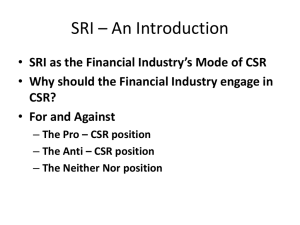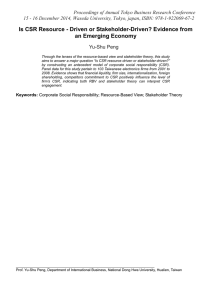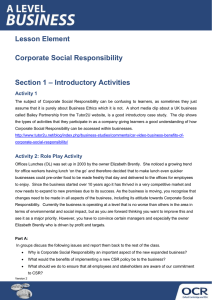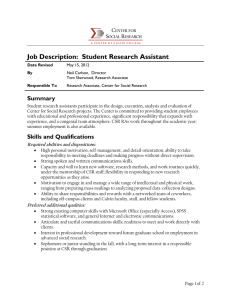7 Deadly Sins of Corporate Social Responsibility (CSR)
advertisement
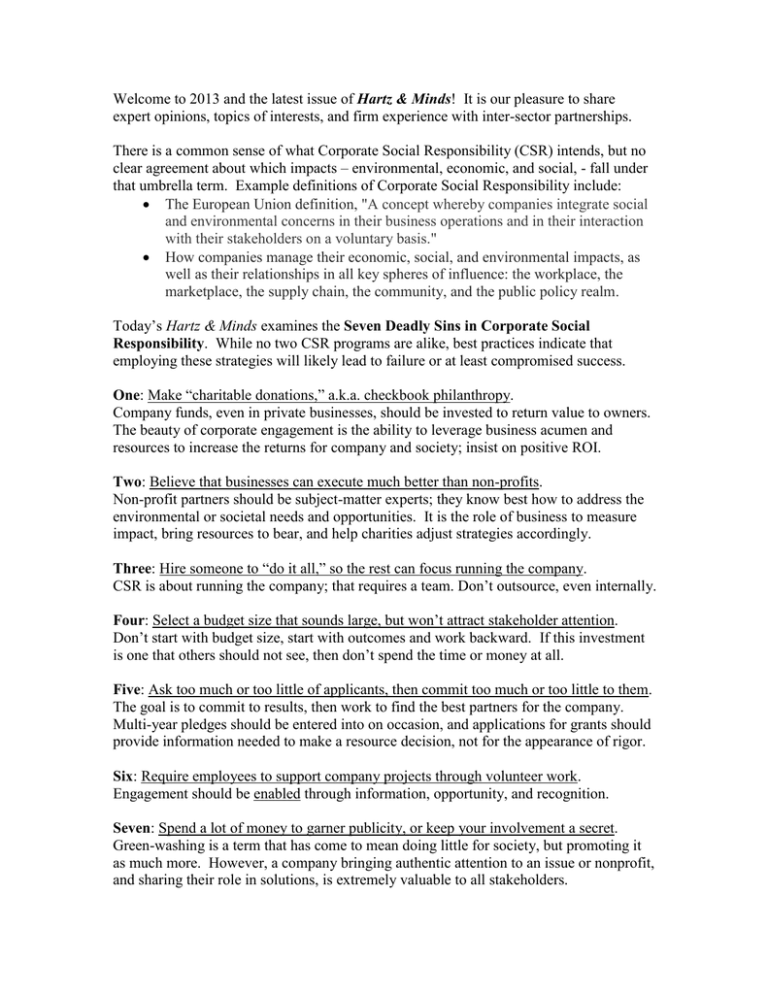
Welcome to 2013 and the latest issue of Hartz & Minds! It is our pleasure to share expert opinions, topics of interests, and firm experience with inter-sector partnerships. There is a common sense of what Corporate Social Responsibility (CSR) intends, but no clear agreement about which impacts – environmental, economic, and social, - fall under that umbrella term. Example definitions of Corporate Social Responsibility include: The European Union definition, "A concept whereby companies integrate social and environmental concerns in their business operations and in their interaction with their stakeholders on a voluntary basis." How companies manage their economic, social, and environmental impacts, as well as their relationships in all key spheres of influence: the workplace, the marketplace, the supply chain, the community, and the public policy realm. Today’s Hartz & Minds examines the Seven Deadly Sins in Corporate Social Responsibility. While no two CSR programs are alike, best practices indicate that employing these strategies will likely lead to failure or at least compromised success. One: Make “charitable donations,” a.k.a. checkbook philanthropy. Company funds, even in private businesses, should be invested to return value to owners. The beauty of corporate engagement is the ability to leverage business acumen and resources to increase the returns for company and society; insist on positive ROI. Two: Believe that businesses can execute much better than non-profits. Non-profit partners should be subject-matter experts; they know best how to address the environmental or societal needs and opportunities. It is the role of business to measure impact, bring resources to bear, and help charities adjust strategies accordingly. Three: Hire someone to “do it all,” so the rest can focus running the company. CSR is about running the company; that requires a team. Don’t outsource, even internally. Four: Select a budget size that sounds large, but won’t attract stakeholder attention. Don’t start with budget size, start with outcomes and work backward. If this investment is one that others should not see, then don’t spend the time or money at all. Five: Ask too much or too little of applicants, then commit too much or too little to them. The goal is to commit to results, then work to find the best partners for the company. Multi-year pledges should be entered into on occasion, and applications for grants should provide information needed to make a resource decision, not for the appearance of rigor. Six: Require employees to support company projects through volunteer work. Engagement should be enabled through information, opportunity, and recognition. Seven: Spend a lot of money to garner publicity, or keep your involvement a secret. Green-washing is a term that has come to mean doing little for society, but promoting it as much more. However, a company bringing authentic attention to an issue or nonprofit, and sharing their role in solutions, is extremely valuable to all stakeholders.

